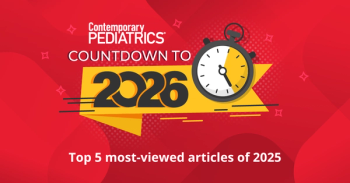
Venous thromboembolism, heparin-induced thrombocytopenia, and direct oral anticoagulants
Chris Kyper, DNP, CPNP-AC/PC, breaks down characteristics of Heparin-induced thrombocytopenia, an uncommon adverse reaction to heparin.
In this video interview, Chris Kyper, DNP, CPNP-AC/PC, pediatric nurse practitioner, Alaska Native Tribal Health, Anchorage, Alaska, reviewed the pathophysiology of venous thromboembolism (VTE) and heparin-induced thrombocytopenia (HIT). Kyper also discussed the use of direct oral anticoagulants (DOAC).
Transcript:
Chris Kyper, DNP, CPNP-AC/PC:
My name is Chris Kyper, I am a pediatric nurse practitioner. I'm certified in both primary care and acute care currently employed by the Alaska Native Tribal Health Consortium in Anchorage, Alaska. I work in the pediatric ICU there at the native hospital.
Contemporary Pediatrics:
Can you tell us about your session, "Don’t Get HIT: Venous Thromboembolism and Heparin-induced Thrombocytopenia," presented at NAPNAP 2024?
Kyper:
I had decided to do this topic this year because I had a patient with it about a year ago. The title of my talk was "Don't Get HIT." It's about venous thromboembolism and heparin-induced thrombocytopenia, and so it's a very rare condition and we don't see it that often. So when I had a patient with it, I had to review the literature and go back brush up on stuff and I thought, it's probably something that would be good for every clinician. Thromboembolism in general is on the rise. As we get more medically complex kids, they form clots in their vessels and things like that and we manage them acutely in the hospital, but then long term, they're managed by their primary care. So it affects everybody who takes care of kids.
The problem with HIT is it's a lifelong allergy to heparin if you actually have it. If you miss the diagnosis of hit, the patient can die. But if you make the diagnosis error, then you commit them to a lifelong of not being able to have heparin. It's not always so bad for kids, but as an adult, there's a lot of procedures like orthopedics and oncology and cardiac that require heparin and you don't want to label somebody as being heparin allergic basically. We talked about thromboembolism and the incidence, what's common about it and what's not.
Then we talked about heparin-containing products, the different anticoagulants that you can use. The direct oral anticoagulants were just approved for pediatrics in the last couple of years, so we started using those which has made a difference in our practice.
Contemporary Pediatrics:
What are some characteristics of HIT that could lead to a diagnosis?
Kyper:
Basically, what happens is you develop antibodies to heparin and you start to drop your platelet count. There's many reasons why you can drop your platelet count. They can be sequestered in the thrombus itself. It could be a bone marrow suppression. But, if you're on heparin, or you've had heparin in the past, you could have antibodies to it. So the the takeaway from it is that if you suspect a patient has HIT, then you need to stop the heparin and put them on a different anticoagulant that doesn't contain heparin, and then you send the confirmatory labs because the labs are not done everywhere. They take a while to be done, but you don't want to wait for the confirmation because the patient could actually die or lose a limb in the meantime.
Contemporary Pediatrics:
Is there a specific age indication for onset typically, or diagnosis?
Kyper:
So thromboembolism itself is more common in infants and then in older, adolescents, less common and except for kids who are hospitalized. It's most common in hospitalized children, or kids that have central venous access catheters.
Contemporary Pediatrics:
Is there anything else you would like to add?
Kyper:
We're going to see the use of the direct oral anticoagulants a lot more as people become comfortable prescribing them, and we'll be using them more for long-term, so pediatricians will be having patients on them for various diseases and for the treatment of venous thromboembolism.
Newsletter
Access practical, evidence-based guidance to support better care for our youngest patients. Join our email list for the latest clinical updates.








